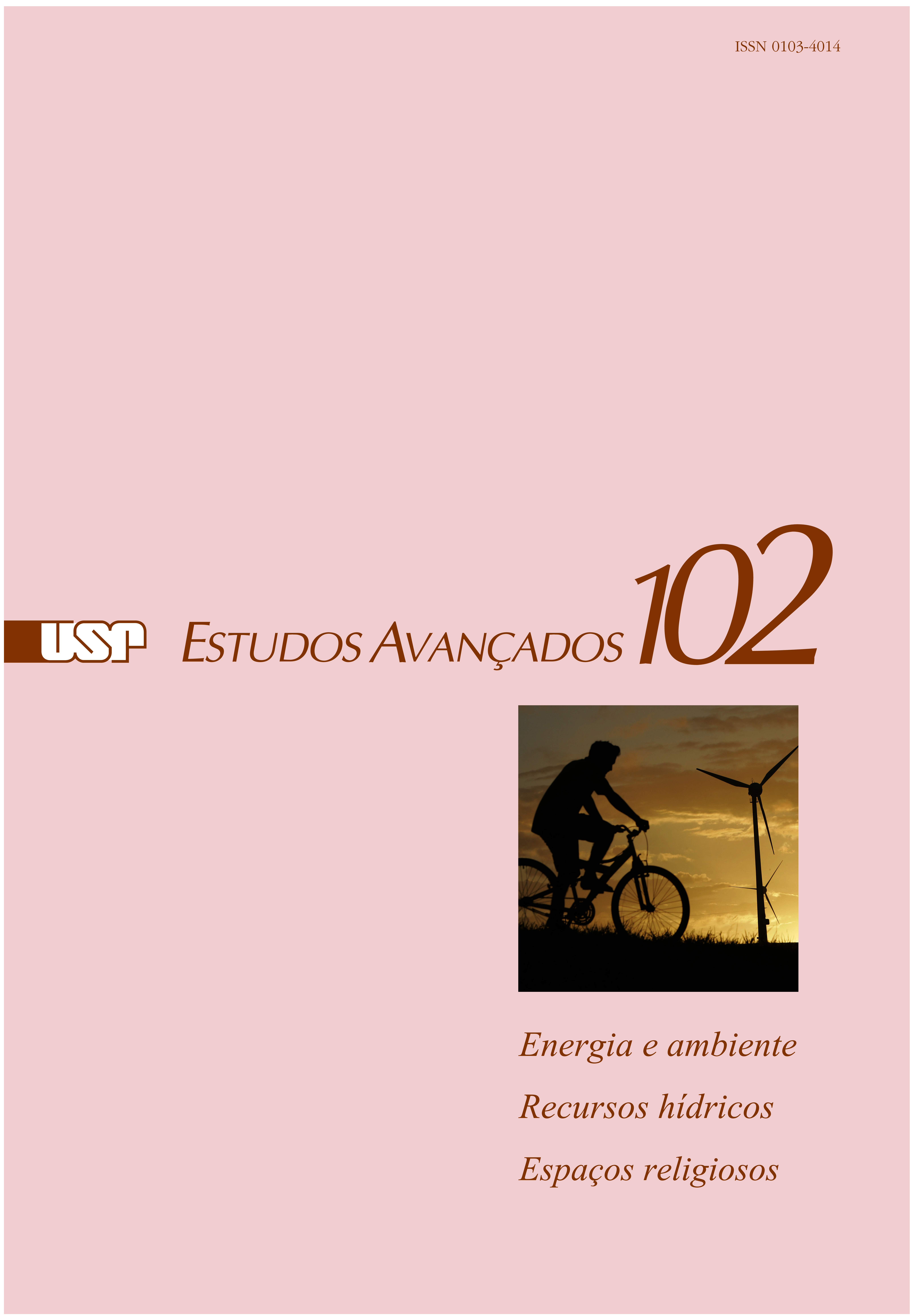Integrando conhecimentos para avançar na adaptação climática no nível local
DOI:
https://doi.org/10.1590/s0103-4014.2021.35102.009Resumo
Os problemas ambientais e sociais existentes no nível local desempenham papel importante na forma em que os efeitos das mudanças climáticas se manifestam. Embora os acordos internacionais e as estratégias nacionais sejam indispensáveis no enfrentamento dessas alterações, as especificidades de cada território requerem respostas de adaptação específicas. A adaptação climática é, assim, desafio particularmente urgente para os tomadores de decisão nos níveis municipal e regional, considerando, sobretudo, importantes lacunas no desenvolvimento de respostas locais, como ausência de dados e falta de vontade política ou recursos. Particularmente relevante é a capacidade de produzir informações que sejam facilmente convertidas em políticas de adaptação. Este artigo investiga a extensão em que três projetos de pesquisa contribuíram na produção de informações para promover adaptação. Os estudos de caso são analisados com o objetivo de identificar como, e em que medida, as interações entre diferentes conhecimentos contribuíram com o processo de adaptação local.
Downloads
Referências
ARMITAGE, D. et al. Co-management and the co-production of knowledge: Learning to adapt in Canada’s Arctic. Global Environmental Change, v.21, n.3, p.995-1004, 2011.
ARNOTT, J. C.; MOSER, S. C.; GOODRICH, K. A. Evaluation that counts: A review of climate change adaptation indicators & metrics using lessons from effective evaluation and science-practice interaction. Environmental Science & Policy, v.66, p.383-92, 2016.
BRILEY, L.; BROWN, D.; KALAFATIS, S. E. Overcoming barriers during the co-production of climate information for decision-making. Climate Risk Management, v.9, p.41-9, 2015.
DARELA-FILHO, J. P. et al. Socio-climatic hotspots in Brazil: how do changes driven by the new set of IPCC climatic projections affect their relevance for policy? Climatic Change, v.136, n.3-4, p.413-25, 2016.
DI GIULIO, G. M. et al. Bridging the gap between will and action on climate change adaptation in large cities in Brazil. Regional Environmental Change, p.1-12, 2019.
DILLING, L.; LEMOS, M. C. Creating usable science: Opportunities and constraints for climate knowledge use and their implications for science policy. Global Environmental Change, v.21, n.2, p.680-9, 2011.
HANNIGAN, J. Environmental sociology. London: Routledge, 2014.
HUBEAU, M. et al. A reflexive assessment of a regional initiative in the agri-food system to test whether and how it meets the premises of transdisciplinary research. Sustainability Science, v.13, n.4, p.1137-54, 2018.
IPCC – Cities. Global Research and Action Agenda on Cities and Climate Change Science. Extended version, Edmonton, 2018. Disponível em: <https://citiesipcc.org/>. Acesso em: 13 jul. 2019.
IUAV. Mantova resiliente. Verso il Piano di Adattamento Climatico - Linee Guida, 2018. Disponível em: <http://www.comune.mantova.gov.it/ALLEGATO%201%20Mantova%20Resiliente_verso%20il%20piano%20di%20adattamento%20climatico_linee%20Guida.pdf>. Acesso em: 17 dez. 2019.
LANG, D. J. et al. Transdisciplinary research in sustainability science: practice, principles, and challenges. Sustainability Science, v.7, n.1, p.25-43, 2012.
LAPOLA, D. M. et al. Heat stress vulnerability and risk at the (super) local scale in six Brazilian capitals. Climatic Change, p.1-16, 2019.
LEMOS, M. C. et al. To co-produce or not to co-produce. Nature Sustainability, v.1, n.12, p.722, 2018.
MAUSER, W. et al. Transdisciplinary global change research: the co-creation of knowledge for sustainability. Current Opinion in Environmental Sustainability, v.5, n.3-4, p.420-31, 2013.
MEADOW, A. M. et al. Moving toward the deliberate coproduction of climate science knowledge. Weather, Climate, and Society, v.7, n.2, p.179-91, 2015.
MORGAN, E. A.; DI GIULIO, G. M. Science and evidence-based climate change policy: collaborative approaches to improve the science–policy interface. In: Communicating Climate Change Information for Decision-Making. Springer, Cham, 2018, p.13-28, 2018.
SERRAO-NEUMANN, S.; COX, M.; LOW CHOY, D. Bridging Adaptive Learning and Desired Natural Resource Management Outcomes: Insights from Australian Planners. Planning Practice & Research, v.34, n.2, p.149-67, 2019.
SERRAO-NEUMANN, S.; DI GIULIO, G.; LOW CHOY, D. When salient science is not enough to advance climate change adaptation: Lessons from Brazil and Australia. Environmental Science & Policy, v.109, p.73-82, 2020.
STEINER, G.; POSCH, A. Higher education for sustainability by means of transdisciplinary case studies: an innovative approach for solving complex, real-world problems. Journal of Cleaner Production, v.14, n.9-11, p.877-90, 2006. VIGLIO, J. E. et al. Narrativas científicas sobre petróleo e mudanças do clima e suas reverberações na política climática brasileira. Sociologias, v.21, n.51, p.124-58, 2019.
WAMSLER, C. Stakeholder involvement in strategic adaptation planning: Transdisciplinarity and co-production at stake? Environmental Science & Policy, v.75, p.148-57, 2017.
Publicado
Edição
Seção
Licença
Copyright (c) 2021 Michele Dalla Fontana, Fabiano de Araújo Moreira, Silvia Serrao-Neumann, Giulia Lucertini, Denis Maragno, Gabriela Marques Di Giulio

Este trabalho está licenciado sob uma licença Creative Commons Attribution-NonCommercial 4.0 International License.
Estudos Avançados não celebra contrato de cessão de direitos autorais com seus colaboradores, razão pela qual não detém os direitos autorais dos artigos publicados. Os interessados em reproduzir artigos publicados na revista devem necessariamente obter o consentimento do autor e atribuir devidamente os créditos ao periódico.


